May 28, 2019
From May 28, 2019
This man and his wife on Guadalcanal, in the Solomon Islands, purposely set themselves apart to live and demonstrate the traditional life of their ancestors. It is their full-time way of life. I visited them today. All photos and videos are taken with their permission.

First I was greeted with the traditional betel nut ceremony, which they wrap and chew together as a way of establishing relations.

The nut itself comes from the areca palm which they have growing on their compound.

It is chewed along with lime (calcium hydroxide), a white powder which they get from snail shells or coral.

Then we entered the kitchen/living area where his wife was putting hot rocks from the fire to heat a pot full of coconut milk.
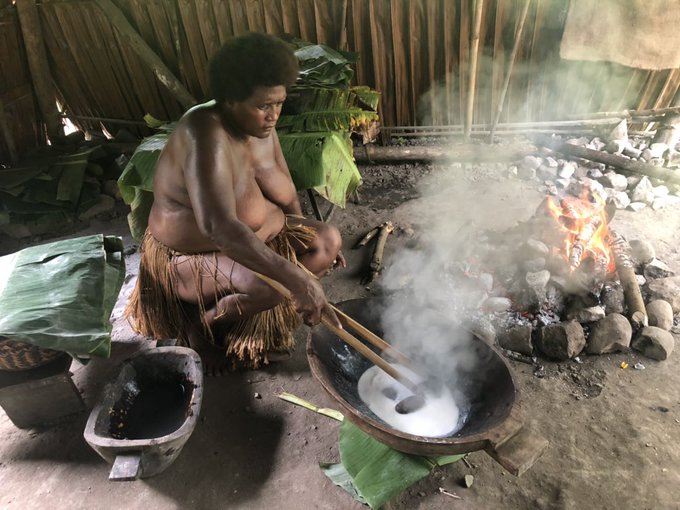
She added in cabbage from their garden to cook with the coconut milk.

She covered it with a layer of palm leaves and then a layer of more hot rocks from the fire on top of it.

She nestled sweet potatoes from their garden among the top layer of hot rocks.

And then she covered the whole thing securely in big palm leaves so all of the steam and heat was trapped inside.

Next she stuffed a bunch of hollow bamboo tubes full of bits of pork and sealed them with a plug of cabbage.
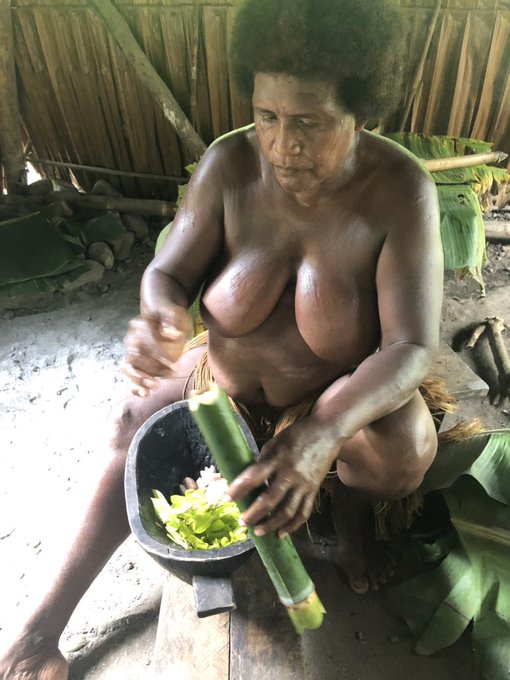
The meat-filled bamboo tubes were put directly in the fire to cook. Everything would take about 45 minutes to be ready.

In the meantime, her husband took me outside to show how to pound a strip of tree bark for making the same kind of loincloth he’s wearing.
A loincloth pounded from tree bark in this way, once dried, will last about six months. He told me “Around the fifth month, you need to start thinking about making a new one.”

The bark actually comes from the tree right in back of him. The tropical rain really started pouring down at this point, but he was completely unfazed by it.

Next he showed me how to make a roof out of palm leaves. Done properly, it should last about 10 years, weather permitting.

The leaves are stitched together using a long wiry twig that gets broken off as you go. Here’s a video of the process:
The end product looks like this (left) and the like this (right) when it’s put in place and begins to age.
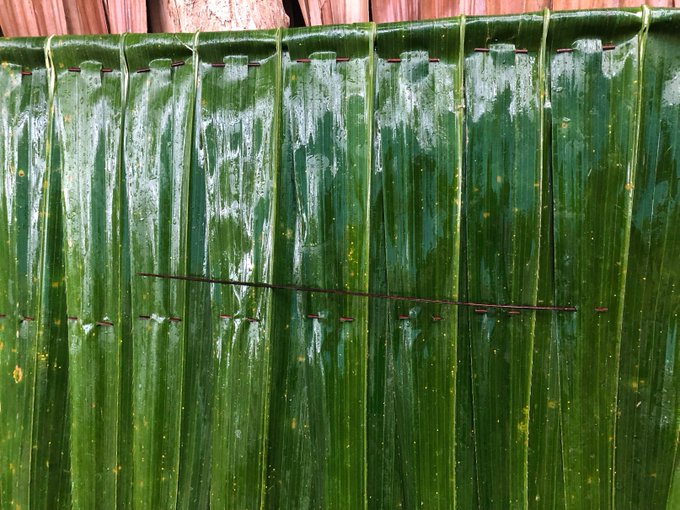

Other leaves and vines can be woven into walls, as well as wooden planks from palm trees woven together. He told me the process of gathering the materials from the forest is actually a lot harder than construction itself.

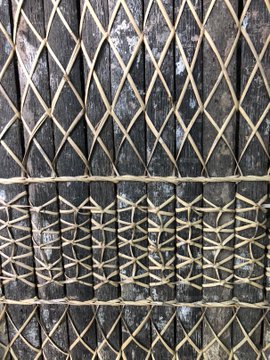
Finally he showed me how they light a fire, by rubbing a stick against a certain kind of log. But he warned me it wouldn’t catch fire today, because it was raining and too damp.
All this time the food had been cooking and was now ready.

His wife cracked open the steaming-hot bamboo tubes to reveal the cooked bits of pork inside.

Meanwhile the man of the house chomped down on a betel nut to relax.

The leaves were unwrapped to reveal steaming hot sweet potatoes, and the cabbage beneath them marinated in coconut milk.

The food was delicious. In fact, it felt a lot like going over to grandma’s house for a home-cooked meal, if grandma wore only a loincloth.

The family sleeps in a separate (and private) enclosed hut a short distance from the kitchen and living area.
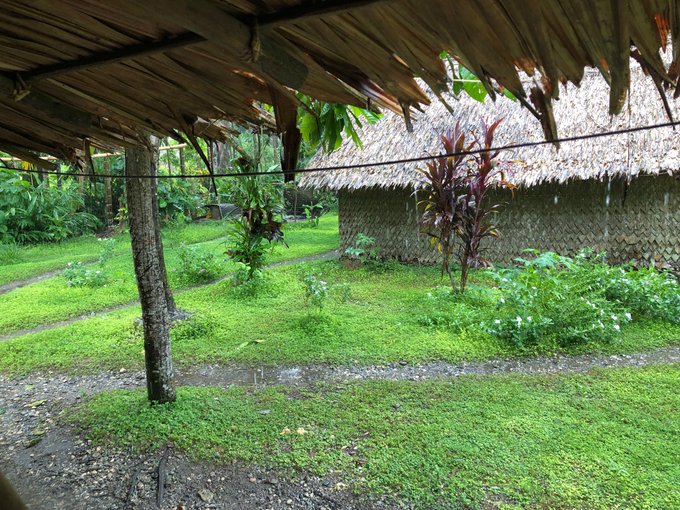
Though Britain established a protectorate over the southern Solomons in 1893, this was still largely the world Japanese and American soldiers encountered when they arrived and found themselves face to face on Guadalcanal in 1942, soon after Pearl Harbor. More on that in a separate thread.

By the way, I should mention that one of the things Solomon Islanders are most famous for is their singing. In fact, you probably will recognize this lullaby:
It of course became the basis for the most famous “world music” song ever, by Deep Forest:
But the choral singing of the Solomon Islands was also featured in the soundtrack to the film “The Thin Red Line”, about the Battle of Guadalcanal.
That’s probably because the movie was filmed on Guadalcanal. In fact, I actually recognized one of the film locations today. You can read about that here.
Leave a Reply